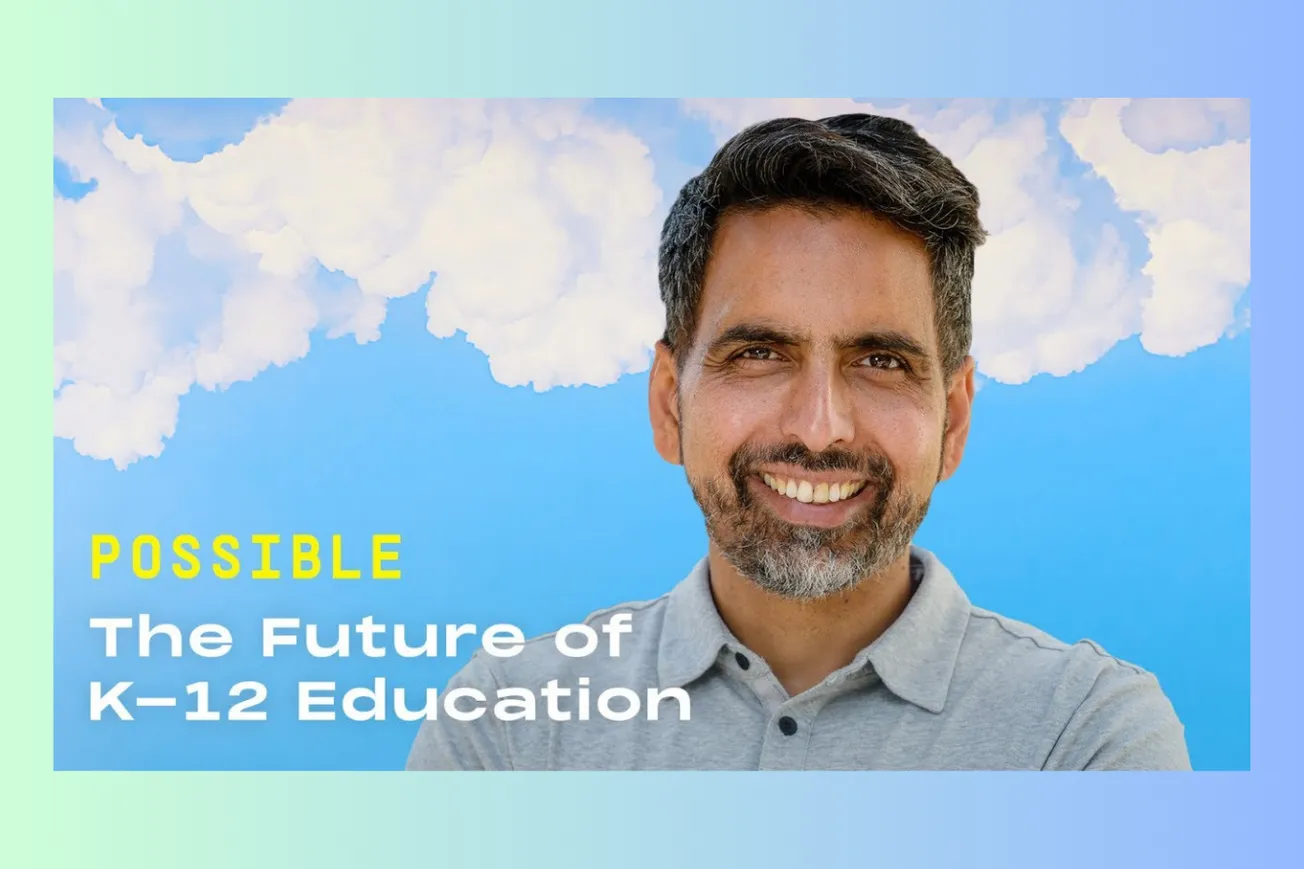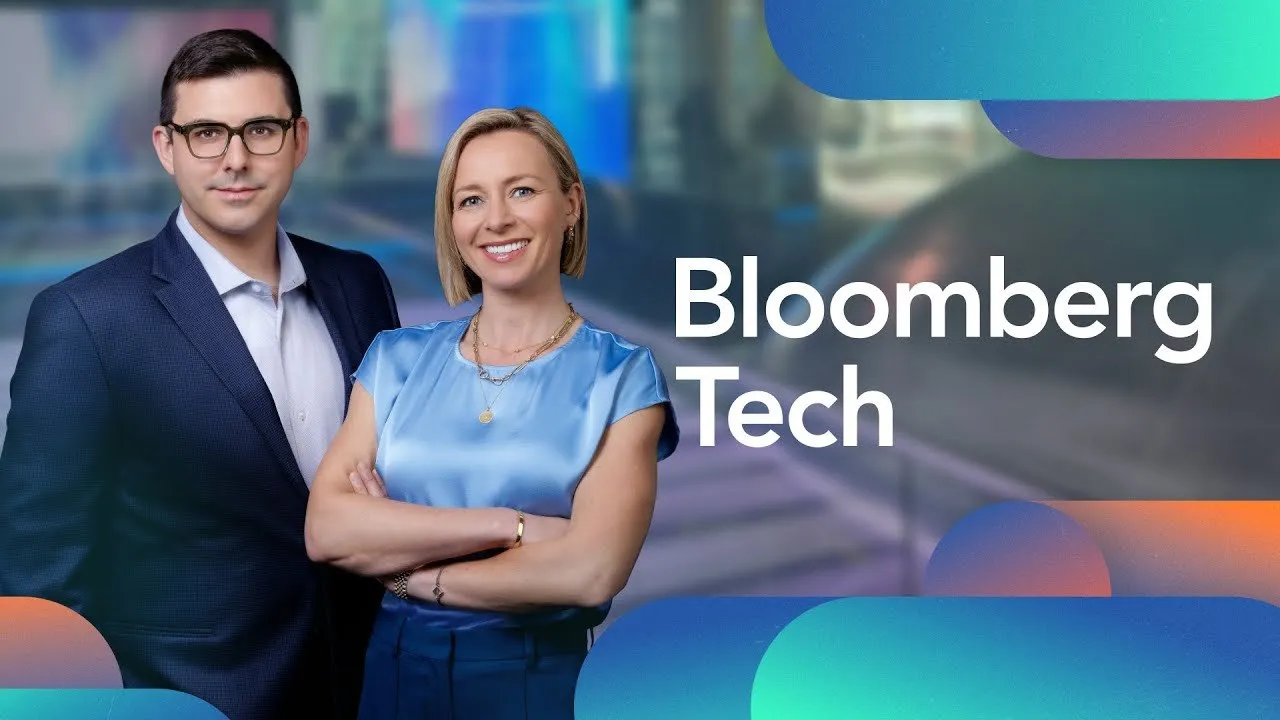Table of Contents
Khan Academy's founder discusses the breakthrough potential of AI tutors to provide Socratic dialogue, writing coaching, and 24/7 support that rivals expensive private tutoring.
Key Takeaways
- AI tutoring can provide personalized, Socratic-method instruction that adapts to each student's learning pace and style
- Khanmigo actively prevents cheating while supporting genuine learning through transparent, monitored interactions with students
- Teachers benefit from AI teaching assistants that reduce administrative work from 15 hours weekly to 90 minutes
- AI tutors offer 24/7 availability and eliminate embarrassment barriers that prevent students from seeking help
- The technology promises to democratize access to high-quality tutoring regardless of economic background
- Memory capabilities allow AI tutors to maintain long-term relationships with students across multiple years
- Future AI systems will provide holistic educational support beyond academic subjects, including internet safety guidance
The Genesis of Personalized AI Tutoring
- Khan Academy's AI tutor Khanmigo represents the culmination of Khan's original vision to "scale up what a tutor would do" through technology. The system emerged from a 2022 partnership with OpenAI, when the company approached Khan Academy before ChatGPT's public launch.
- Early skepticism about GPT-3's educational capabilities transformed into excitement when GPT-4 demonstrated genuine understanding. Khan realized that "a lot of these ideals of scaling say a tutor for every student or a teaching assistant for every teacher this isn't science fiction anymore."
- The platform deliberately adopts a whimsical, wonder-filled personality to make learning engaging. Unlike generic AI assistants, Khanmigo maintains educational focus while preventing academic dishonesty through transparent monitoring systems.
- Safety considerations drove feature development from the beginning. The team converted potential risks into protective features, including active conversation moderation, parental notifications, and transparent interaction logs for minors.
- Socratic methodology guides Khanmigo's teaching approach, helping students discover answers rather than providing direct solutions. This method promotes deeper understanding and critical thinking skills essential for long-term retention.
- Real-world testing demonstrates effectiveness across diverse student populations. Students report feeling supported by what they describe as having "a tutor sitting next to me" available whenever questions arise.
Revolutionizing Teacher Support and Amplification
- Teachers spend an average of 10-15 hours weekly on administrative tasks like lesson planning, grading papers, and writing progress reports. AI teaching assistants can compress this workload to approximately 90 minutes while maintaining quality standards.
- The technology addresses teacher burnout by removing routine tasks rather than adding complexity. Unlike previous edtech tools that demanded additional learning curves, AI assistants reduce workload while improving student outcomes.
- Collaborative rubric development between teachers and AI ensures assessment consistency while maintaining educator oversight. Teachers remain central to the process while benefiting from automated first-pass evaluations and detailed student interaction reports.
- Classroom observation reveals enhanced student engagement when AI support is available. Teachers report that students ask better questions and demonstrate increased confidence in seeking help for previously intimidating concepts.
- Professional development becomes more personalized as AI can analyze individual teacher needs and suggest targeted improvements. This approach contrasts with one-size-fits-all training programs that often miss specific educator challenges.
- Student-teacher relationships strengthen when administrative burdens decrease. Teachers can invest more time in meaningful interactions, fostering the caring adult connections research shows are crucial for student success.
Addressing Academic Integrity in the AI Era
- Traditional plagiarism detection becomes obsolete when AI can generate unique content instantly. Khanmigo's solution involves transparent process documentation rather than output monitoring, showing exactly how students and AI collaborated throughout assignments.
- The platform reports comprehensive interaction summaries to teachers, including time invested, areas of struggle, writing consistency comparisons, and full conversation transcripts. This transparency makes academic dishonesty immediately apparent.
- Students using external AI tools or essay mills face detection when their work appears without documented collaboration. The system recognizes when content arrives without the iterative development process characteristic of genuine learning.
- Writing instruction transforms from product evaluation to process coaching. AI provides real-time feedback on thesis development, source credibility, and argument structure while students maintain ownership of their ideas.
- Teacher-defined support levels allow customization based on assignment goals and student needs. Some projects might encourage extensive AI collaboration, while others limit assistance to brainstorming and editing suggestions.
- The approach creates accountability through visibility rather than restriction. Students understand their learning process is transparent, encouraging genuine engagement over shortcut-seeking behaviors.
Democratizing Access to Premium Educational Resources
- Economic barriers to quality tutoring dissolve when AI provides round-the-clock support at minimal cost. Students from disadvantaged backgrounds gain access to resources previously available only to affluent families paying $50-100 hourly rates.
- Early implementation in Newark, New Jersey demonstrates potential for systemic change. Students in underresourced schools report feeling supported by AI tutoring that adapts to their individual learning needs and schedules.
- Availability advantages surpass even expensive human tutors. AI remains accessible during late-night study sessions, doesn't require scheduling, and eliminates social anxieties that prevent students from asking questions.
- Geographic barriers disappear as rural and remote students access the same quality instruction available in major metropolitan areas. This equalizing effect addresses longstanding educational inequities.
The technology extends beyond academic subjects to provide holistic support. Future versions will offer guidance on study habits, time management, and even internet safety as students navigate digital environments.
- Memory capabilities enable multi-year relationships between AI tutors and students. This continuity mimics the proven benefits of teachers who maintain long-term connections with their students across multiple grade levels.
Reimagining Screen Time and Educational Engagement
- The pandemic's forced remote learning created negative associations with educational technology, but thoughtful implementation produces different outcomes. Khan's lab school demonstrates how technology enhances rather than replaces human interaction.
- Optimal screen time involves strategic usage rather than duration limits. Students benefit when technology facilitates collaboration, enables peer support, and frees teachers for more interactive activities.
- Physical classroom dynamics improve when routine tasks shift to digital platforms. Students engage in more simulations, Socratic dialogues, and collaborative projects because basic skill practice occurs efficiently through AI-supported platforms.
Mastery-based learning reduces competitive pressure and increases collaboration. Students work together toward learning thresholds rather than competing against each other in traditional grading curves.
- The Khan World School online program demonstrates effective virtual education through minimal daily screen time. Students spend 60-90 minutes in Socratic dialogues and debates, with remaining interactions occurring through messaging and periodic check-ins.
- International visitors to Khan's lab school observe significantly more person-to-person interaction than traditional classrooms, despite increased technology usage. This paradox occurs because technology handles routine tasks, freeing humans for meaningful connections.
Global Educational Leadership and American Innovation
- International educational rankings often misrepresent actual system effectiveness by comparing selective populations rather than comprehensive student bodies. Massachusetts alone would rank among top global performers if considered independently.
- Educational delegations from high-performing countries like Singapore and Finland visit Silicon Valley seeking innovation insights. Despite superior test scores, these nations recognize that breakthrough thinking emerges from American educational culture.
Traditional Prussian educational models emphasize standardization and pace uniformity across cultures. Khan advocates for distinctly American approaches that embrace risk-taking, entrepreneurship, and growth mindset principles.
- Growth mindset implementation requires systemic changes beyond individual teacher efforts. Mastery-based learning allows multiple attempts at success, mirroring entrepreneurial thinking where failure provides learning opportunities rather than permanent setbacks.
- Cultural attitudes toward educator authority vary globally, with some systems discouraging student questioning. The ideal balance involves respecting teachers while maintaining intellectual curiosity and willingness to challenge assumptions.
- American educational exceptionalism should emphasize innovation cultivation over test score competition. The goal involves creating systems that produce creative problem-solvers rather than high-performing test-takers.
Future Visions for AI-Enhanced Learning
- Memory capabilities will enable AI tutors to maintain comprehensive student profiles across years and subjects. These systems will provide incoming teachers with detailed insights about student interests, learning preferences, and historical challenges.
- Video conferencing with AI tutors represents the next technological leap, creating more natural interaction modes. Students will engage with AI personalities through familiar communication channels rather than text-only interfaces.
- Holistic educational support extends beyond academic subjects to include internet safety, time management, and digital citizenship. AI guardians will help students navigate online environments while developing healthy technology relationships.
The vision encompasses AI tutors that transcend individual platforms, providing continuous support regardless of learning context. Students will access the same supportive AI whether working on Khan Academy exercises or exploring other educational resources.
- Immersive learning experiences through virtual reality will enable historical simulations, scientific explorations, and cultural exchanges. Students might explore ancient Rome or conduct virtual chemistry experiments with AI guidance.
- Productivity gains from AI implementation could fundamentally reshape societal structures. Khan envisions a future where most people operate as knowledge workers and entrepreneurs rather than following traditional employment hierarchies.
Common Questions
Q: Will AI tutors replace human teachers in classrooms?
A: AI amplifies teachers by handling administrative tasks and providing individual student support, freeing educators for meaningful human interactions.
Q: How does Khanmigo prevent students from cheating on assignments?
A: The system documents the entire collaboration process, making it obvious when work appears without proper AI interaction history.
Q: What makes AI tutoring accessible to low-income students?
A: AI provides 24/7 availability without scheduling constraints or hourly fees, democratizing access to personalized instruction.
Q: How do parents monitor their child's AI tutor interactions?
A: All conversations with students under 18 are transparent to parents and teachers, with active monitoring for inappropriate content.
Q: What subjects can current AI tutors effectively teach?
A: Khanmigo handles math, writing, science, and social studies while offering historical figure conversations and Socratic dialogue across topics.
AI tutoring represents the most significant educational innovation since the printing press, offering personalized instruction at unprecedented scale. The technology promises to eliminate barriers between students and high-quality learning while preserving the irreplaceable human elements of great teaching.





